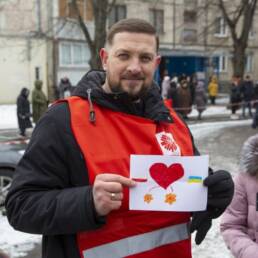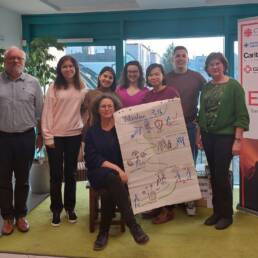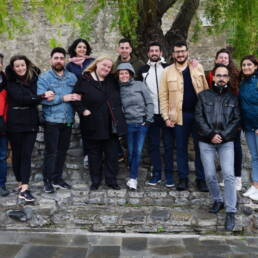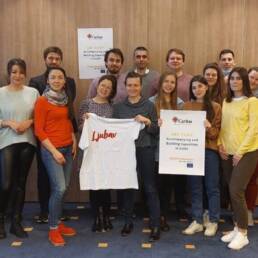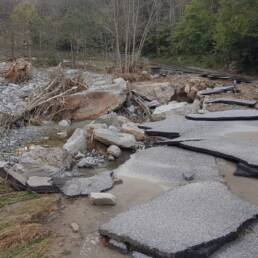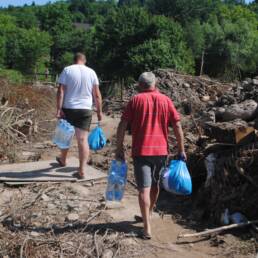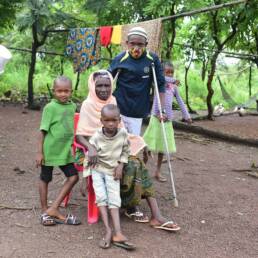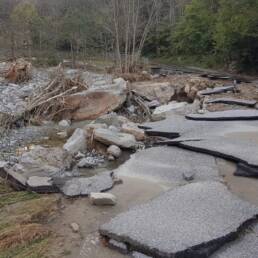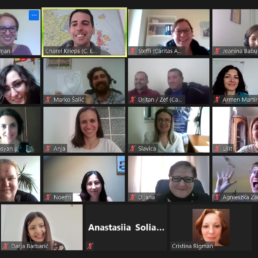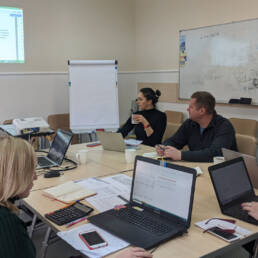Author
Jovana Loncarevic
DRR Coordinator
Caritas Serbia
Serbia is vulnerable to several types of natural disasters – floods, landslides, fires and earthquakes.
In the last five years, the territory of Serbia has been affected by small tornadoes and hailstorms with high speed winds. These are the direct consequence of global warming and climate change. Serbia is at high risk of disasters and immediate actions are necessary to reduce the risk when a disaster occurs. Also, it is necessary to take actions to slow down the effects of climate change.
In 2015 Caritas Serbia started with the implementation of the program Disaster Risk Reduction, which still continues. In cooperation with the Public Investment Management Office, the Ministry of Interior of the Republic of Serbia – the Sector for Emergency Situations and Local Governments, Caritas Serbia has implemented a number of activities in the past few years, which have contributed to making local communities more resilient to the consequences of natural disasters and their inhabitants more prepared. As is well documented in the field of crisis management, the most vulnerable category of society during a natural disaster is children up to 10 years of age.

Caritas Serbia, during the implementation of the program, also developed a unique approach in raising awareness among the children. The first step is to educate children about human behavior and natural disasters, to show them how human behavior is affecting nature and to inform them about environmental protection. They are also taught how to protect themselves in the event of a crisis. Since the beginning of the project implementation, Caritas has implemented over 300 workshops in more than 200 primary schools in Serbia. In order to improve the knowledge of children, as well as to create continuity in raising awareness of natural disasters, a set of educational materials was created during the project. More than 8.000 sets of coloring books (about floods, earthquake, storms, and fires) have been distributed all over Serbia.
The second step of the approach is to go outside with them and their teachers, and sometimes with their parents, to clean forests or parks near homes or schools. To date Caritas Serbia together, with the help of children from elementary schools, has cleaned 5 parks which communities now use for recreation and playing. By cleaning the parks and forests, children learned that garbage causes a large number of fires and that fire destroys trees that are important for humans and for the planet. Other than cleaning, children were involved in the planting of trees. Several schools joined Caritas Serbia’s actions of planting trees near schools or in risk zones around their communities. Children from elementary schools participated in the process of soil preparation for planting. After several days of digging holes for trees, they enjoyed the moment of planting the trees. To date, with the help of the children approximately 1.500 trees have been planted. Today, besides school involvement in Caritas Serbia’s actions, people of all ages from different communities participate and so far around 15.000 trees have been planted all over Serbia. By planting trees and helping to rehabilitate forests, the participants recognized the importance of a healthy ecosystem. Trees that were planted are important not just for the environment, reducing the effects of climate change, but also for mitigating the risk of large scale damage from natural disasters. The trees will slow down high-speed winds, reduce the risk of snowstorms, and as a result communities will be more resilient in the event of a crisis.

Raising awareness about environmental protection and conservation, the consequences of natural disasters, as well as the necessity of preparation and prevention, requires continuity in the implementation of activities that achieve the stated goal. In addition, it is necessary to involve all relevant institutions as well as all interested civil society organizations. By working together and sharing resources, the goal that is to be achieved will be more efficient and effective. Since this project began, through the work done in the field, Caritas Serbia has followed the above principles to the fullest possible extent, which is confirmed by the feedback from the schools and local governments with whom we cooperated.


